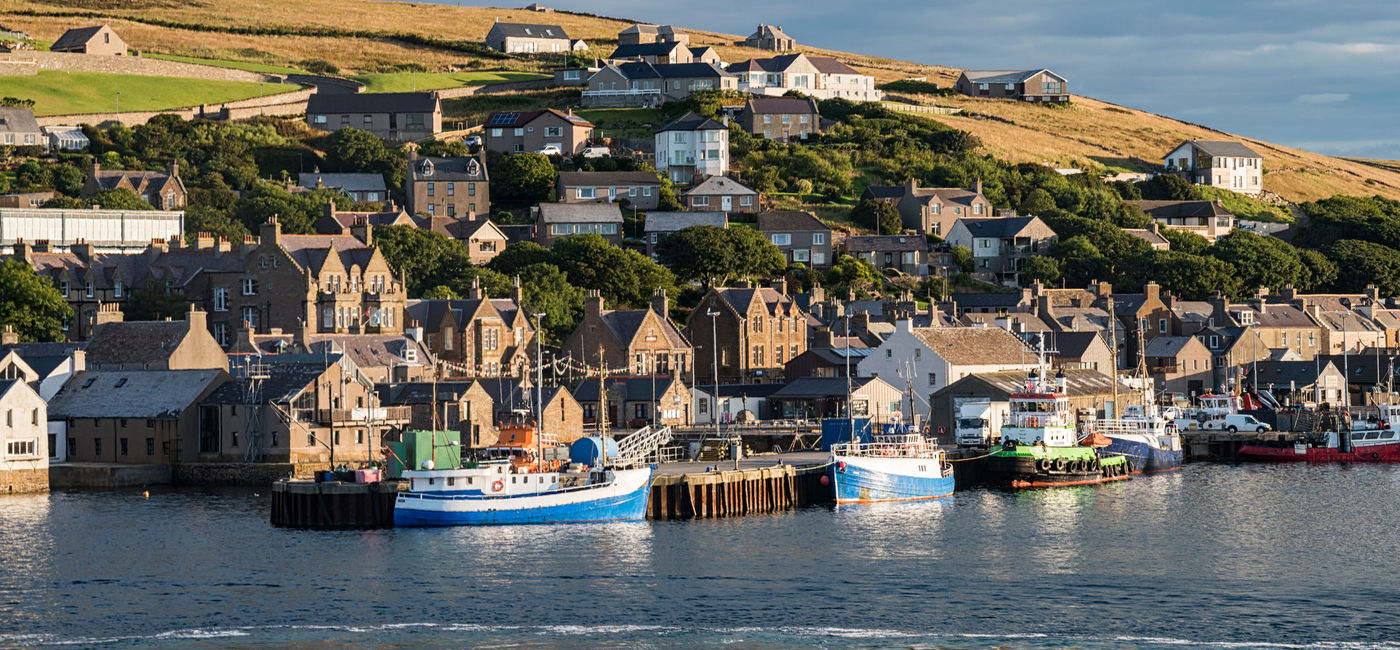Orkney Islands to Implement Restrictions on Cruise Traffic

The Scottish archipelago of the Orkney Islands announced it was considering restricting the number of cruise ships that can visit the small island chain this week.
According to CruiseHive.com, the small community, which numbered just about 22,000 in 2019, sometimes welcomes 7,000 cruise travelers a day. While tourism is good for the economy, this many travelers — just about a full third of the entire islands’ population — can lead to over tourism woes, such as road closures, large crowds and other negatives.
According to the Orkney Islands Council Harbour Authority, the Orkney Islands are the U.K.’s most popular cruise ship stop, with cruise ports in Kirkwall and Stromness. The latest update for cruise ship arrivals, published August 17, totals 211 cruise ships, many of which sail with over a thousand passengers.
Cruise lines that visit the island chain include Norwegian Cruise Line, Carnival Cruise Line, MSC Cruises, Holland America Line, Seabourn and others.
The islands are most famous for the UNESCO World Heritage Site of Skara Brae, a Neolithic settlement that’s dated to 5,000 years old and remains the best preserved European settlement of the era.
The islands haven’t yet made an official plan for restricting the amount of cruise ships or passengers able to visit yet. The local council is expected to present a plan on August 22 that will limit the amount of large cruise ships daily.
The Orkney Islands is the latest destination to consider restricting large cruise ship traffic. Venice, Barcelona and Amsterdam are the most famous and recent cruise destinations that have made inroads to restricting or have announced they will be restricting large cruise ships.
European destinations in particular seem to have reached a conclusion following the pandemic that the large numbers of travelers, especially cruise travelers, are neither sustainable nor are they needed.
